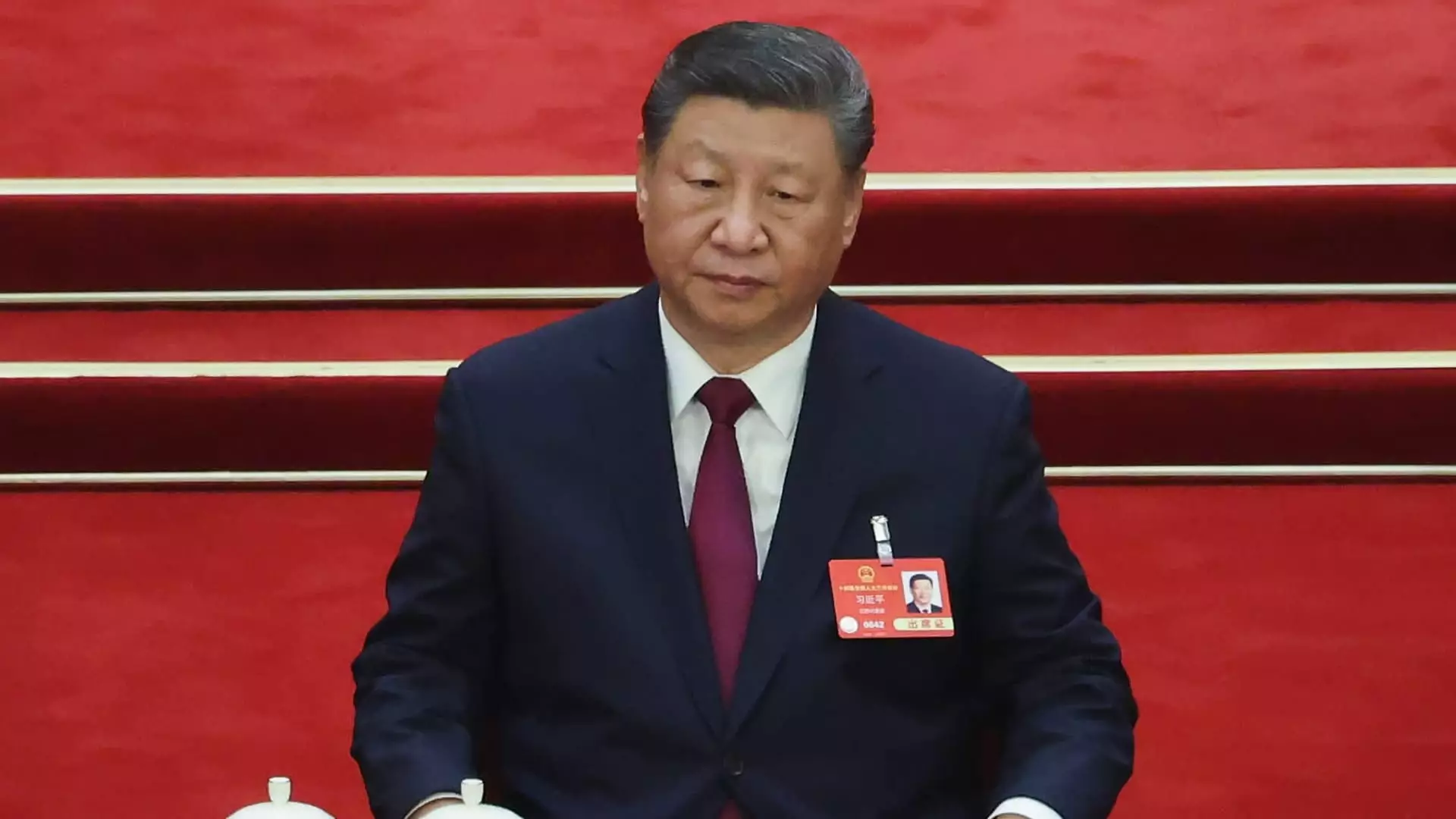The ongoing trade conflict between China and the United States exemplifies a dangerous game of brinkmanship that could have catastrophic repercussions for the global economy. With President Donald Trump’s administration implementing massive tariffs on Chinese goods and China retaliating with equally punitive measures, we find ourselves in a precarious situation where sensible dialogue is overshadowed by nationalistic fervor. The recent hike of Chinese tariffs on U.S. imports to an alarming 84% from 34% is not just a number; it symbolizes an unwillingness to engage in rational negotiation and paints a grim outlook for countries that rely on mutual trade for their economic vitality.
The Perils of Economic Isolationism
The core issue lies in the myopic belief that raising tariffs will somehow protect American businesses while simultaneously punishing foreign competitors. This kind of economic isolationism is not only short-sighted but fundamentally flawed. The fact is, the U.S. exported $143.5 billion worth of goods to China in the previous year while importing a staggering $438.9 billion. This imbalance should be a call for strategic reform and collaboration rather than an excuse to escalate tensions. However, instead of seeking balance, the Trump administration seems intent on provoking confrontations that threaten the very fabric of global trade.
The triggers for these punitive policies were seemingly arbitrary—an effort to restrict elements like fentanyl, which was quickly transformed into a broader economic warfare strategy. This inversion of priorities clearly signals a lack of coherent long-term strategy, opting instead for knee-jerk reactions that place immediate electoral gains above sustainable economic policy. This reckless escalation blindsides not just the adversary but also the American populace, who will likely face higher prices and dwindling job opportunities as companies struggle with inflated costs.
The Worldwide Ripple Effect
The ramifications of this devolution into trade hostilities extend far beyond the two nations embroiled in this tit-for-tat skirmish. Financial markets have reacted unfavorably, with substantial sell-offs in major stock indices, including the S&P 500 and South Korea’s Kospi Index. The heightened uncertainty fuels fears of a global economic downturn, trembling investors anticipating higher inflation coupled with sluggish corporate profits. As the trade war progresses, the likelihood of economic deceleration becomes more pronounced—an outcome that would be disastrous in an already fragile post-pandemic recovery landscape.
Worse still, as a liberal society that endorses free trade and international cooperation, the U.S. should be applying pressure to reform practices that lead to unfair advantages, not instigating a trade war that puts such reforms at risk. Japan exhibited a different path, opting for diplomatic discussions to reach mutually beneficial agreements. Yet, China’s counter-tariff response illustrates its resolve and dedication to a hard-line stance, which does nothing to assuage the intensity of the trade war.
The Dangers of Hyperbole and Inflexibility
U.S. Treasury Secretary Scott Bessent’s commentary on China’s supposed unwillingness to negotiate underscores the unfortunate reality that polarizing rhetoric leaves little room for compromise. Labeling China as a “worst offender in the international trading system” evokes an adversarial mentality that may alienate potential allies. When diplomacy is replaced with fiery accusations, the opportunity for progressive dialogue diminishes substantially.
It is somewhat paradoxical; China, often labeled as the villain in the dialogue, is merely responding to a hostile environment. The disconnect here serves only to escalate fears, inviting isolationist tendencies while diluting the chances for cooperation on issues like intellectual property concerns and currency manipulation.
While it is easy to see the immediate attractions of a trade war—like displaying national strength and uniting a base—it obscures the structural changes that must occur for the U.S. economy to thrive in the long term. What is needed is not just a metric rise in tariffs but a comprehensive reevaluation of trade practices. Americans should insist on constructive conversations that transcend partisan bickering and focus on sound policies meant to reinforce our global standing rather than diminishing it through destructive isolationism.
In a world interconnected by commerce, cooperation remains our strongest weapon; trade wars only lead us down a path of self-destruction.

Leave a Reply